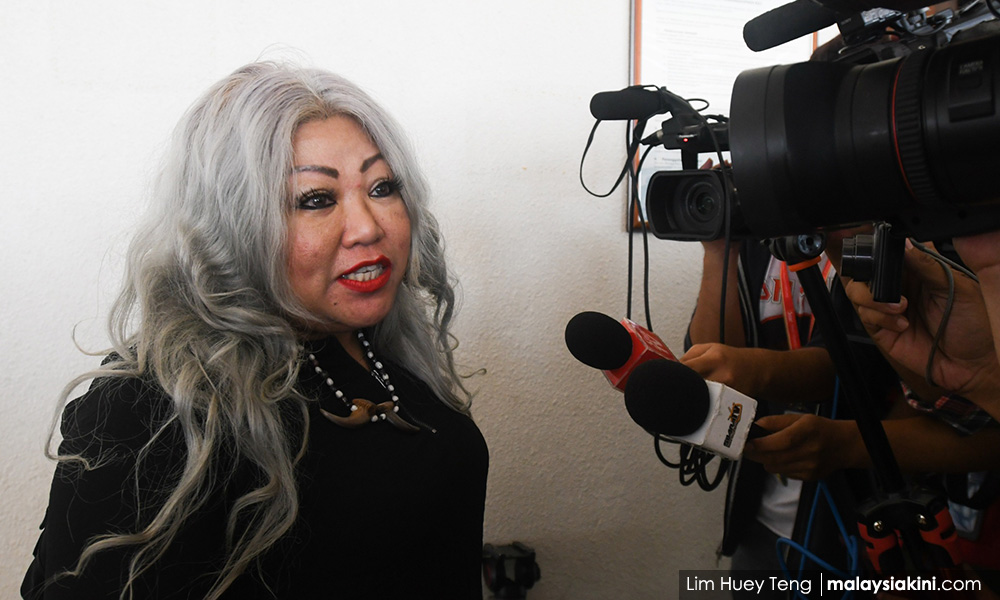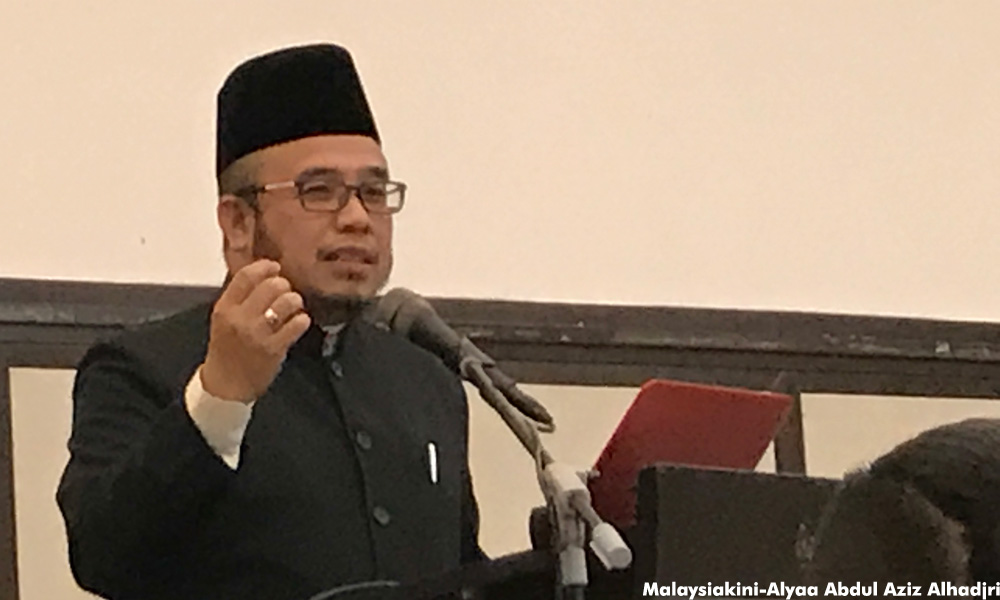
SUHAKAM INQUIRY | Attempts by lawyer Siti Kassim (above) to highlight extremist elements within the Sunni school of thought in Islam caused tensions to rise during her cross-examination of Perlis mufti Dr Asri Zainal Abidin.
During a Sukaham inquiry on missing persons, Siti, a Bar Council observer, had questioned Asri on his earlier testimony that he was concerned over the alleged spreading of Syiah teachings due to possible ties with extremist activities.
Among others, she cited the name Abu Bakar Al-Baghdadi and questioned Asri whether he was aware of the individual identified as a Daesh leader.
"Is he a Syiah?" she asked Asri, to which he responded, "I did not check."
Siti then retorted, "I think everyone knows he is a Sunni."
Asri had earlier pressed Siti for clarifications to her question but Suhakam commissioner Mah Weng Kwai, who heads the inquiry panel, cautioned the two to maintain decorum and not enter into an argument.
Siti persisted and attempted to question Asri on whether he "knew" Osama bin Laden, at which point Mah told her to "cut it out."
Mah also cautioned Siti when she attempted to question Asri on whether he would condone social activist Amri Che Mat's "extrajudicial" disappearance in context of his anti-Syiah stand.
Mah said the term "extrajudicial" was never raised in the inquiry while the term "enforced disappearance" has yet to be established by the panel.

Asri (above) repeatedly asked Siti to clarify her question and this prompted another rebuke from Mah.
"Your job here is to ask questions. Not to question back the person who is asking you," Mah told Asri who eventually said he had no stand on the matter.
"I am not in the position to answer that kind of stupid question," said Asri at the end of the inquiry's morning session.
Earlier, Siti subjected Asri to a series of "yes" or "no" rapid-fire questions, to one of which he agreed that he had been accused as an adherent to the Wahhabi school of thought in Islam.
National fatwa
It was then highlighted that the National Fatwa Council had in 2015 declared the Wahhabi school of thought as being "out of place" in Malaysia because its followers were fond of declaring Muslims of other schools as apostates merely on the grounds that they did not conform to Wahhabi teachings.
In his testimony, Asri had defended his reported views on Syiah being a threat to national security as he said there were elements of the teaching that could purportedly lead its followers towards extremism.
Suhakam is currently investigating whether the disappearances of Amri, attached to social welfare organisation Perlis Hope, and two others were “enforced or involuntary,” as defined by the International Convention for the Protection of All Persons from Enforced Disappearance (ICPPED).
This is defined as the arrest, detention, abduction or any other form of deprivation of liberty by agents of the state or by persons, or groups of persons acting with the authorisation, support or acquiescence of the state.
The instrument was adopted by the United Nations General Assembly in 2006. Malaysia is not a signatory to the ICPPED.
The two other disappearances being investigated are that of pastor Joshua Hilmy and his wife Ruth Sitepu.
The commission had previously investigated pastor Raymond Koh’s disappearance but was forced to suspend proceedings after former Uber driver Lam Chang Nam was charged in court for abducting Koh.
The law bars Suhakam from probing matters which have been brought before the court. - Mkini



No comments:
Post a Comment
Note: Only a member of this blog may post a comment.